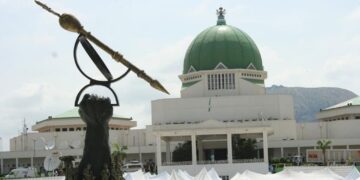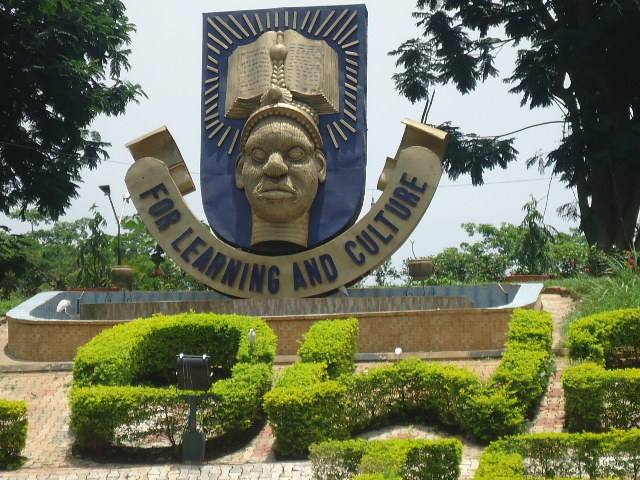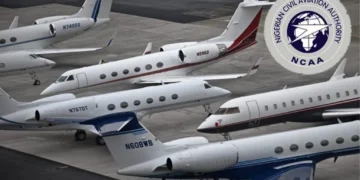[ad_1]
By Christian Appolos | Abuja
The key roles of African Civil Society Organisations and diaspora networks in promoting better migration governance was a major talking point on Monday as the capacity building workshop for African CSOs on global migration processes and frameworks kicked off in Abuja.
Also, ahead of the Global Forum on Migration and Development (GFMD) coming up in 2024, African CSOs have been urged to work collectively to provide a synergised position that would be beneficial for the continent.
Representatives from the Nigerian government, International Organisation for Migration (IOM), Nigeria Labour Congress (NLC), ECOWAS, FES in their different goodwill messages at the opening ceremony of the workshop, pledged better collaboration with the CSOs to ensure they continue in their advocacy work of promoting orderly migration.
Nigerian Tribune reports that the three- day workshop is hosted by Pan African Network in Defense of Migrants Rights (PANiDMR) with support from ITUC-Africa.
Hon. Imaan Sulaiman-Ibrahim, the Federal Commissioner, National Commission For Refugees, Migrant and Internally Displaced Persons (NCFRMI), while declaring the workshop open, said CSOs are an important component of migration management, noting that this is exemplified by the roles they play both at the design and implementation phases of every migration policy.
Ibrahim, who was represented by Grace Ofonime Ukpong, said the role of Civil Society Organisations (CSOs) in migration governance in Nigeria and the world cannot be overemphasised.
She said, “In Nigeria, migration governance adopts a whole-of-society approach, bringing together stakeholders from the government (national and sub-national), the academia, the private sector and the civil society. Migration-focused CSOs in Nigeria, have been actively involved in policy formation, return, and reintegration and several forms of migrant assistance, including early recovery, family tracing, temporal shelter and psychosocial support, as well as research, awareness-raising, joint advocacy, training and capacity building.
“It is noteworthy that in recent times, the flagship migration awareness raising event of the NCFRMI and the National Migration Dialogue was co-hosted by civil society, under the auspices of the Civil Society Network on Migration and Development (CSOnetMADE) in 2021.
“This unique collaboration showcased the Nigerian government’s readiness to work in partnership with civil society towards effective migration governance. The first CSO Day, as a precursor to the dialogue, was instituted in 2021, and this was replicated in 2022 with appreciable success.”
Speaking on the GFMD summit scheduled for 2024, the Federal Commissioner said, “The GFMD is a platform for influencing migration policy direction at the global level and as the GFMD is co-chaired by sub-Saharan Africa in 2023, it is imperative that African countries work collectively to provide a synergised position of our migration realities, control our narrative and chart a way forward that would be beneficial for the continent and ensure that the world takes notice and begin to take us seriously.”
Also speaking, General Secretary of the Nigeria Labour Congress, Emmanuel Ogboaja, said the congress is elated by the mission of the organisers of the workshop to strengthen members and other stakeholders’ capacity in fulfilment of its mandate and to discuss extensively migration issues as it affects Africa in relation to GCM and GFMD.
The NLC General Secretary, who was represented by Comrade James Eustace, the NLC focal person on migration, noted that the congress is “readily available to be active in the 2023 GFMD process as an opportunity to bring to bear and advocate our concerns towards the GFMD summit in early 2024.”
He said, “For us in the NLC, we are committed to the ideals being pursued by the organisers in realising the African agenda in relation to the protocol of free movement, AfCFTA and RECs.”
The IOM Chief of Mission in Nigeria, Mr Laurent De Boeck, in his address, said the IOM is committed to support the efforts of all actors to protect migrants’ rights and to make migration human and orderly, thus contributing to the development of communities and societies.
According to him, the Global Compact on Migration calls for a whole-of-government, whole-of society approach to achieving its objectives, adding that this means engaging everyone in designing and evaluating policies for good migration governance, ensuring that migrants and diasporas contribute to sustainable development.
He explained that “IOM recognises Africans’ immense human capital and material resources in the diasporas towards the continent’s overall socio-economic, cultural and political development. It is key to recognise the African Civil Society’s vital role in harnessing these.”
Also speaking, the Director, Social Services and Humanitarian Affairs at the ECOWAS Commission, Dr Sintiki Tarfa Ugbe, noted that the ECOWAS commission is very much aware of the importance of the civil society as a ‘core pillar’ in regional integration.
He pledged that the commission will always be committed and supportive of every effort towards the mobilisation and coordination of the activities of the civil society in the region for maximal impact.
He said, “The Commission is keen to explore every avenue to involve the Civil Society Organisations and other stakeholders in the popularisation and implementation of the vision. Already we have developed a draft of the ECOWAS non-state actors’ engagement strategy awaiting validation.”
He disclosed that at the heart of the new ECOWAS vision 2050 is “a community of people fully integrated in a peaceful, prosperous region, with strong institutions that respect fundamental freedoms and work for inclusive and sustainable development.”
[ad_2]






